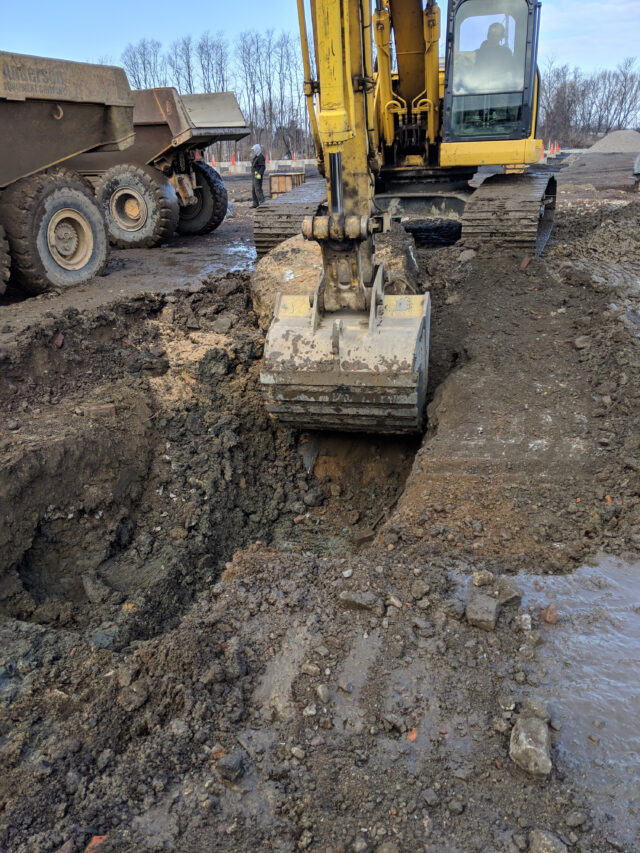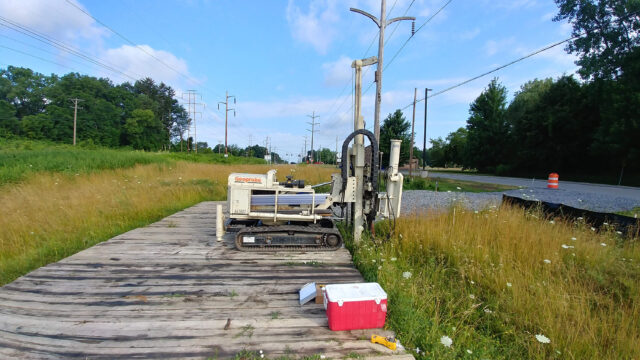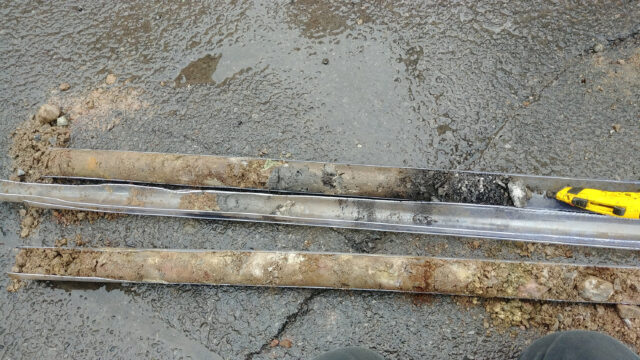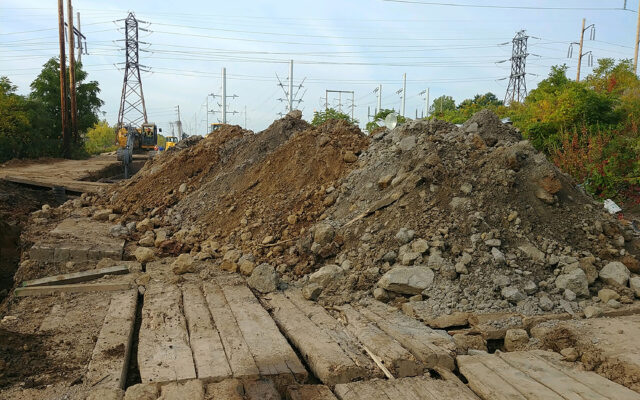An Area of Potential Concern (APEC) study is your first line of defense when it comes to knowing what you might encounter in the ground during your construction project.
The APEC study is beneficial for the following reasons: you will know if there is a higher potential that you could encounter contaminated material prior to the start of your construction project, and you can explore potential issues in advance and avoid costly change orders and job shutdowns. An APEC study can be performed to identify potential sites with environmental concerns in the vicinity of any planned construction that will generate soil spoils.
The most efficient way to go through this process is to reach out to your environmental professional several months prior to the planned start of construction. This would provide sufficient time to complete the APEC study, identify any areas of environmental concern, and complete pre-construction soil sampling, if warranted. The APEC study will give you peace of mind as you will have options for the handling and management of spoils that will be generated by the project prior to the start of the project. Not only does this potentially save money and time in the long run, but it can also prevent potential violations and issues with government agencies.
Do you know if your project is going through a State Superfund Site or a Brownfield Cleanup Program Site? The APEC study can help to identify this and will prompt consultation with the applicable regulatory agencies (such as the New York State Department of Environmental Conservation (NYSDEC), the New York State Department of Health, the Environmental Protection Agency, etc.) and ensure compliance with any Site Management Plans, Excavation Work Plans, or Engineering/Institutional Controls.
A recent example where an APEC study was successful is an overhead transmission line project where geotechnical soil borings were to be advanced to complete final design plans. The APEC study revealed that two geotechnical soil borings planned for advancement were located on a State Superfund Site. Had the APEC study not been completed, this may have not been discovered until much later and the geotechnical borings could have been advanced without following that site’s Site Management Plan. Because this was discovered so early in the process, we were able to work with the NYSDEC, develop the required Excavation Work Plan, and ensure compliance with the requirements of the State Superfund Site.
For your next construction project, consider completing an APEC study. It can help to alleviate headaches down the road, save time and money, and keep your project running smoothly and efficiently. Our environmental professionals are here to help with conducting APEC studies, developing and implementing sampling plans, and managing spoils during construction.




